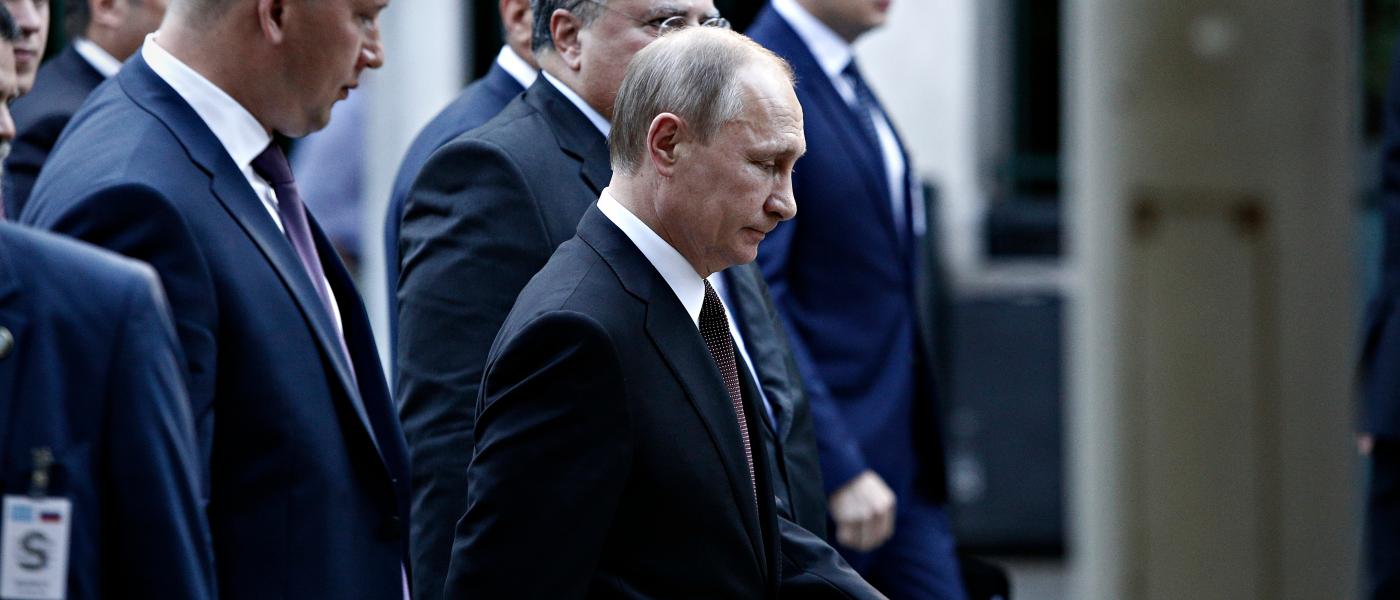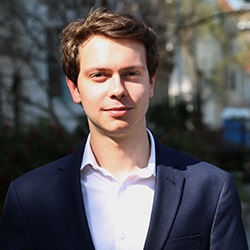On May 3, the Syrian Civil Defense, known as the White Helmets, announced that the U.S. State Department had suspended funding for the group, stating that the support is “under active review.” The White Helmets are Syrian volunteer rescue workers that focus on providing protection and recovery assistance for Syrian civilians caught in the crossfire of the country’s ongoing civil war. Head of the White Helmets, Raed Saleh, expressed concern for the group’s long-term viability without State Department assistance, as U.S. funding accounts for around a third of the group’s overall budget. However, one actor who described the disheartening development as “fantastic news” was Russian Foreign Ministry Spokeswoman Maria Zakharova. The Kremlin has long despised the White Helmets, decrying the group as providing “cover for anti-Assad terrorists” in order to discredit the humanitarian organization’s exposés of the grave human rights abuses committed by the Russian-backed Assad regime. Thus, the end of U.S. funding for the White Helmets presented an opportunity for Moscow, which the Kremlin’s disinformation machine has exploited, to undermine U.S. policy and promote a pro-Kremlin narrative of the Syrian conflict.
The Alliance for Securing Democracy’s Bret Schafer describes that the Kremlin has conducted a “sustained campaign to discredit” the White Helmets in Syria, as the group has shined a spotlight on the human rights violations of the Assad regime and its allies. Along with their rescue efforts, the White Helmets have gained significant fame for their video documentation of airstrikes and attacks in the country. Footage published by the White Helmets helped document the horrific chemical attack in Khan Sheikhoun in April 2017, which UN war crimes investigators concluded was perpetrated by the Russian-backed Assad regime. The group was also the subject of an Oscar-winning Netflix documentary and the recipient of two Nobel peace prize nominations, according to The Guardian.
To discredit the White Helmet’s efforts, pro-Kremlin and pro-Assad media outlets have published numerous attacks against the group, pushing conspiracy theories and false narratives that link the volunteers to terrorists and staged human rights violations. In February, the Atlantic Council’s Digital Forensic Research Lab highlighted a disinformation narrative published by Russian state-controlled media that accused the White Helmets of working with an Al Qaeda affiliate to stage a chemical weapons provocation. Additional accusations from Russian Foreign Minister Sergei Lavrov and other Russian officials have backed these claims, painting the group as a Western propaganda tool. Following the April 2017 chemical attack on Khan Sheikhoun, Russian media lashed out against reports of the Assad regime’s culpability, describing it as a staged attack. Similarly, pro-Kremlin outlets have employed comparable tactics in the wake of the Assad regime’s chemical attack in Douma in April 2018, alleging that the White Helmet’s staged evidence of the attacks. Although these claims have been widely refuted in the Western press, the U.S. suspension of funding for the White Helmets has provided the Kremlin’s disinformation outlets with new ammunition to reinvigorate their assault on the truth.
In the aftermath of the White Helmet’s May 3 announcement, Russian media outlets and officials have seized on the opportunity to try to steer public discourse. Russian Foreign Ministry Spokeswoman Maria Zakharova lauded the news, calling for further investigation into Western support for the White Helmets to better understand how the group functions as a mechanism for producing false information. Zakharova specifically called out the United States, United Kingdom, and France, who launched strikes against the Assad regime in response to the Douma chemical attack. Russian media outlets have similarly exploited the event, running major articles on the suspended funding to assert pro-Kremlin narratives. RT, one of the Kremlin’s largest international outlets, framed the event within the context of its false narrative of the White Helmet’s “Douma chem[ical] attack claim fall[ing] apart.” Thus, the suspension of U.S. funding for the humanitarian organization has granted pushers of pro-Kremlin disinformation both new evidence and renewed vigor in their effort to devalue the truth and undermine Western responses to future human rights violations.
The disinformation campaign surrounding the Douma chemical attack and its exploitation of the U.S. decision to halt funding of the White Helmets is nothing new or unique from the Kremlin’s playbook. As with Moscow’s reaction to the Skripal poisoning, Russian officials and outlets have adamantly denied accusations, while simultaneously flooding the information space with false, conspiratorial narratives to distract discussion and undermine potential unified responses. The U.S. government should have seen this coming, as President Trump officially froze funding for Syrian recovery efforts in late March. This decision has been a boon for the Kremlin, undermining U.S. influence in Syria and supporting Kremlin narratives that paint all dissenters to the Assad regime as terrorists. Funding for recovery efforts in Syria, which cost around $200 million, amounts to “a rounding error” in the U.S. budget; however, it goes a long way toward protecting the Syrian people and potentially holding the Kremlin and the Assad regime accountable for their horrific actions in the country. The Kremlin thrives on decentralized opportunism, and it will continue to exploit future weaknesses and vacuums created by U.S. policy changes to its favor.
The views expressed in GMF publications and commentary are the views of the author alone.





